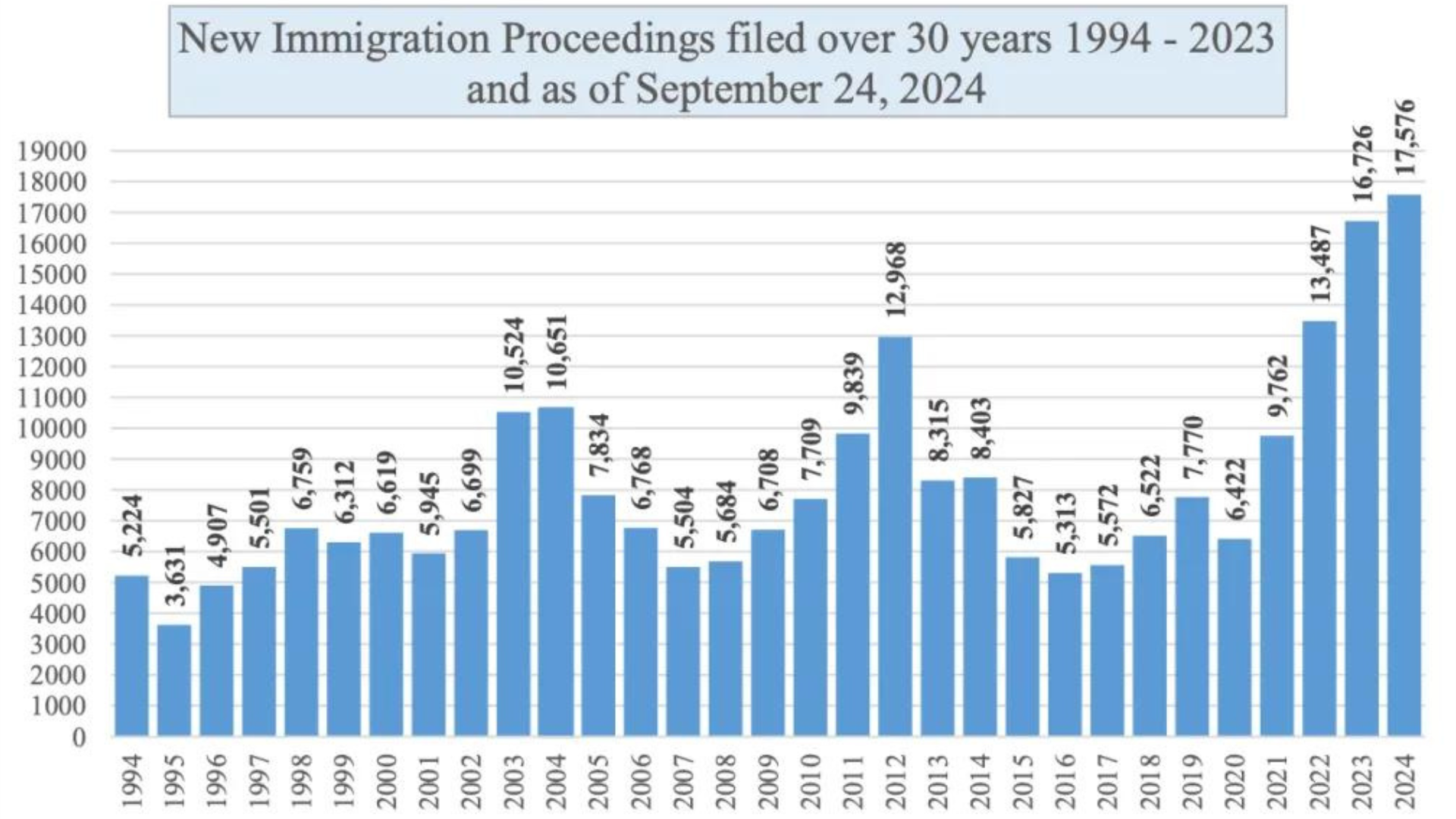International students with Canadian study permit rejections may soon benefit from a groundbreaking pilot project launched by the Federal Court on October 1, 2024. This initiative aims to expedite judicial reviews, reducing wait times from 14-18 months to under five months.
As Canada faces an unprecedented rise in immigration cases—projected to reach 24,000 filings by the end of the year—the Federal Court is streamlining the process for those challenging study permit refusals.

Why the Pilot Project Is Needed
The surge in international students, coupled with post-pandemic backlogs, has placed immense pressure on Canada’s immigration system. Traditionally, the application for judicial review could take over a year, hindering students from starting or continuing their studies in Canada.
With the Federal Court now handling four times the average number of immigration cases compared to pre-pandemic years, delays have become significant obstacles. In response, the Federal Court, in collaboration with Immigration, Refugees and Citizenship Canada (IRCC) and other legal bodies, launched this pilot project.
How the Study Permit Pilot Project Works
Key procedural changes make judicial reviews faster and more efficient:
- Simultaneous Leave and Merits Decision: Both steps of the judicial review process are assessed at the same time eliminating delays, where previously a leave would need to be granted first before the court hears the merits of the case.
- No In-Person Hearings: Neither applicants nor IRCC officials need to appear before a judge, reducing administrative burdens and costs.
- Processing Time Reduced to Under Five Months: This critical change allows students to adjust their academic plans more swiftly.
Despite these expedited procedures, there is no additional fee for participating in the pilot; the standard filing cost remains $50.
Eligibility Criteria for the Pilot Project
To participate, applicants must meet specific criteria:
- Study Permit Refusal: The applicant must have received a refusal from IRCC.
- Mutual Agreement: Both the applicant and IRCC must agree to opt into the pilot and the core facts of the case.
- Straightforward Case: Only cases without complex legal issues, such as security concerns, are eligible.
- Timely Filing: Applicants must submit their judicial review application within 15 days if in Canada and 60 days if outside.
- No Affidavits: New evidence such as in the form of affidavits is not permitted.
How to Apply for the Study Permit Pilot Project
Students interested in the expedited judicial review process must:
- File their leave and judicial review applications electronically using the court’s system.
- Complete Form IR-1 for Leave and Judicial Review, indicating participation in the pilot.
- A judge will review the application and provide a decision.
New Government Policies Shaping International Student Permits
This pilot project coincides with the Canadian government’s new policies to manage the rising number of international students and their impact on housing and affordability. In January 2024, IRCC capped international student admissions at 485,000, with plans to reduce this by 10% in 2025.
Additional changes include:
- Reduced study permit targets to 437,000 in 2025.
- Restrictions on Post-Graduation Work Permits (PGWPs) based on language skills and labour demand.
- Limits on Spousal Open Work Permits (SOWPs) for spouses of master’s students.
Why This Pilot Project Is Important for International Students
The stakes are high for international students, as study permit refusals can lead to significant delays or even an end to their academic pursuits in Canada. Without timely decisions, many students find themselves in a state of uncertainty, unable to reapply or explore alternative options. The Study Permit Pilot Project addresses these challenges by offering expedited resolutions, enabling students to make informed decisions without enduring extended waiting
This expedited timeline not only benefits students but also alleviates pressure on the immigration system, allowing the court to concentrate on more complex cases while effectively addressing the needs of international students.
Next Steps After a Study Permit Refusal
Facing a study permit refusal can be daunting, but with the right approach, international students can still pursue their educational aspirations in Canada. Before reapplying, it’s essential to understand the reasons behind the refusal.
At Northern Connections Canada, we offer a comprehensive Visa Refusal Management Service to guide you through this challenging process.
Our licensed experts, led by Kay Wilson, RCIC, Canadian Immigration Consultant and Foreign Worker Recruiter, assist individuals from over 30 countries with living, working, and studying in Canada.
Our consultants are licensed members in good standing with the College of Citizenship and Immigration Consultants (CICC) and the Canadian Association of Professional Immigration Consultants.
Our Visa Refusal Management Service includes:
- Requesting Case Notes: We help you obtain your case notes from Immigration to identify the reasons for the visa refusal.
- Detailed Review: A thorough review of your case files with actionable next steps.
- In-Depth Consultation: We conduct a consultation to provide guidance on your next steps and how to address the concerns of the visa officer.
You can also schedule a one-on-one virtual consultation with one of our Immigration Consultants for personalized support throughout your immigration journey.
Take the next step and book your consultation today!
The Team at Northern Connections Canada



